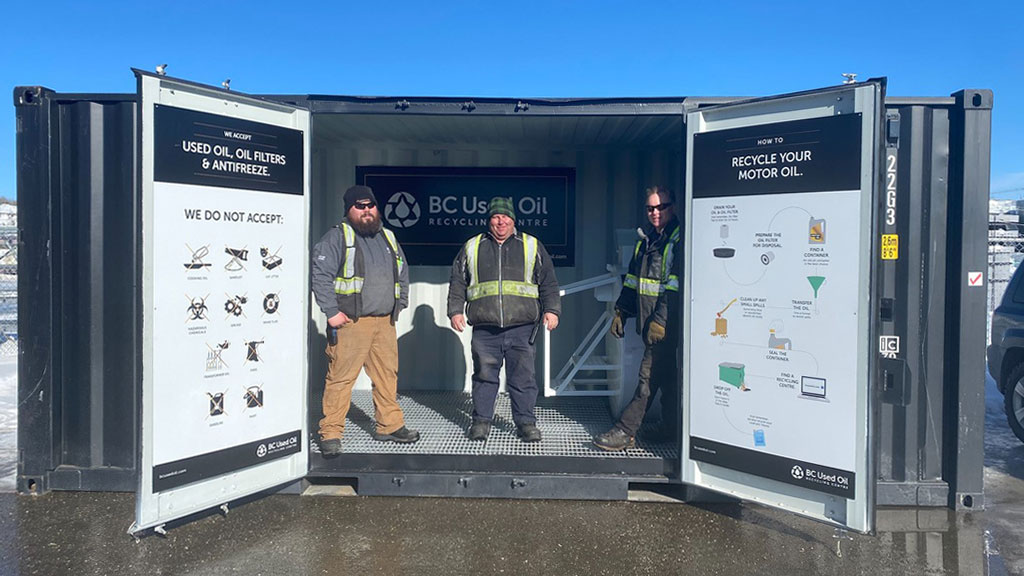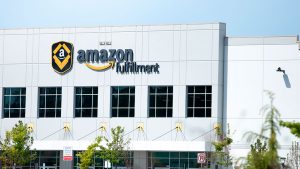For Global Recycling Day on March 18, why not take a look at what’s under your hood?
The British Columbia Used Oil Management Association (BCUOMA) is calling for industries and individuals to make sure they are recycling their oil and anti-freeze as part of the push to create a sustainable and circular economy.
“We collect and bring back for recycling oil and anti-freeze and containers and filters and turn that back into new products,” said BCUOMA’s CEO David Lawes.
The BCUOMA collects used and contaminated oil, anti-freeze, filters and oil and anti-freeze containers then re-refines the waste products into useable material at a refinery in North Vancouver.

Lawes said 100 per cent of what comes into their facilities is recycled. Most motor oils and anti-freeze are cleaned up and turned back into their original product, often exceeding quality standards. But even oils so contaminated they can’t be used again are turned into other products, he said.
The BCUOMA is celebrating 20 years of recycling this year. In 2021, the association recycled nearly 50 million litres of oil. That’s the equivalent of about 10 million oil changes for the average car.
The expansion of a circular economy provides a number of important environmental benefits.
Products that would normally end up in a landfill are diverted into a recycling facility, a new product is made that didn’t require extensive emissions and less crude material needs to be mined from the earth.
Lawes said B.C. is a leader in oil recycling.
“About three quarters of the motor oil sector in British Columbia gets turned back into new motor oil. It doesn’t get down cycled, doesn’t get changed into other products, it gets turned into the exact same product it was sold as,” he said.
“That to me is the definition of a circular economy.”
The association was founded under the B.C. Extended Producer Responsibility (EPR) program, which requires producers like manufacturers, distributors and retailers to take responsibility for the life cycle of the products they sell.
As a result, the association is funded by manufacturers and producers, Lawes said.
EPR programs occur across most of Canada but B.C. has the most varied recycling programs in the entire continent, he said.
Lawes said his association is encouraging more individuals and smaller businesses to ensure they are recycling their oil and anti-freeze, noting most of the oil comes in from larger companies.
“The consumer level is the more difficult level to get out there because that means educating residents and consumers about where they can take back oil,” he said.
The association already has 300 collection centres around the province, with the goal of having a place to drop off used oil within a 15 minute drive of most population centres.
In the past three years, the BCUOMA has invested in ensuring access and accessibility. They have been purchasing and modifying sea containers to make it easy for residents to use.
“I think it’s the best infrastructure in the world,” said Lawes when asked about sea containers.
The containers have been modified to include welded grated flooring, collection tanks and non-slip surfaces inside. In the event of any oil spill, the liquid will pour through the grated flooring and get collected underneath.
The containers have signs to make navigation easy and can be picked up and dropped off anywhere oil recycling is needed.
Lawes noted there was a significant uptick in recycling during the pandemic.
“It put a lot of pressure on our sites, to make sure that during a pandemic you can still be open and have customer interaction. But we did it.”
It’s free to drop off used oil at a collection area. For a charge, BCUOMA can help people or businesses with large quantities of oil get a truck to drive out and collect it.
Lawes said he’d like to see the program develop to the point where there are many one-stop recycle spots where you can bring in all sorts of chemicals to get repurposed.
Follow the author on Twitter @JOC_Evan.











Recent Comments